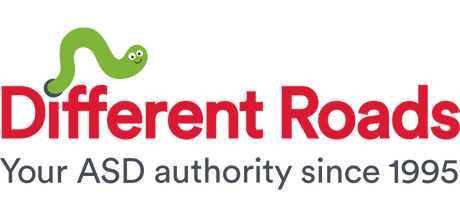"This is hard" is a statement I often hear from families both in the midst of intervention, and pre-intervention during the assessment phase.
Families without support and services find it hard helping their Autistic child navigate the world, and families in the midst of therapies and interventions find generalizing them to be hard.
It's hard to consistently generalize an intervention plan outside in the home, on the weekends, on Sunday at the grocery store, on vacation at Grandma's house, or at 6am on a Saturday when your child only slept 2 hours.
But its also hard to supervise/monitor your child 24-7, to break up sibling fights all day long because your child can't share, to find quality childcare options when your child is highly aggressive, or to figure out if your child is ill or sick when they can't tell you.
Both are hard.
It is rarely a discussion of hard vs easy, and much more common is a decision regarding which "hard" is acceptable. Yes, toilet training is hard work. On the flip side, changing an 8 year-olds diaper isn't exactly easy. Nor is it easy to afford to buy diapers for that many years.
Yes, teaching your child to use utensils instead of eating with their hands is hard. On the flip side, restricted diet and issues around mealtimes can be made worse if the child will only eat finger foods (typically, starches and carbs). That is also hard.
Yes, it is hard to consistently follow a Behavior Plan when in public with your child. On the flip side, being asked to leave locations, having friends ask that you not visit, or being scared someone will call the police on your child during a public outburst, is a hard reality to live out.
You have to decide which "hard" to accept.
I intentionally use the phrase "intervention plan" and not "ABA therapy", because maybe your child isn't receiving ABA services. Maybe you don't want that, or can't access it.
But are they receiving Speech services? OT? PT? In special education at school? Attending an Autism preschool program?
If so, these are all interventions designed to minimize developmental delays and target current deficits.
Whatever kind of intervention your child participates in, there are a few components that tend to be the same across different therapies:
1. Consistency. In order to be effective, the intervention must be applied consistently. Frequent staff turnover, frequently canceling appointments, or other issues like this can negatively impact results.
2. Training must carry over to the home setting/caregivers. There is no way to generalize the intervention if you have no idea what it is.
3. Caregiver Participation. In order for #2 to happen, the caregivers must be willing and available to participate in the intervention/treatment plan.
4. Focus on progress vs miracles. Progress can be slow, it can be up and down, and at times it can mean treading water. Sometimes an absence of regression IS progress. If you have sky high expectations of the intervention process, this can cause "provider hopping" where families move from one agency, provider, or intervention to the next looking for magic. That just is not how quality, ethical treatment works.
5. Individualized Intervention. It doesn't matter if your child receives 30 minutes of Speech each week, or 15 hours of ABA. Are the treatment goals and the teaching methodology suitable and appropriate for your child? "Cookie-cutter" intervention is when treatment is applied in a lazy, vague, and generic way across multiple clients. In order for intervention to be effective, it must meet your child where they are and incorporate their unique interests and motivation(s).
About The Author: Tameika Meadows, BCBA
“I’ve been providing ABA therapy services to young children with Autism since early 2003. My career in ABA began when I stumbled upon a flyer on my college campus for what I assumed was a babysitting job. The job turned out to be an entry level ABA therapy position working with an adorable little boy with Autism. This would prove to be the unplanned beginning of a passionate career for me.
From those early days in the field, I am now an author, blogger, Consultant/Supervisor, and I regularly lead intensive training sessions for ABA staff and parents. If you are interested in my consultation services, or just have questions about the blog: contact me here.”
This piece originally appeared at www.iloveaba.com.
